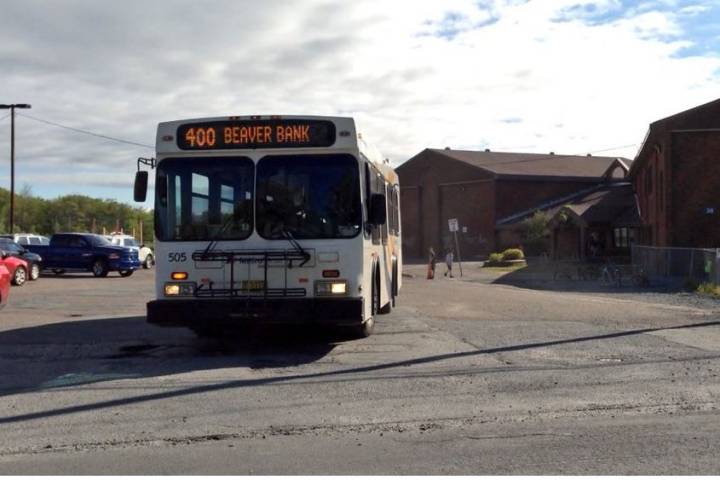KJIPUKTUK (Halifax) – I often get approached by people on income assistance who want me to tell their story.
What sets this story apart from other stories I have written for the Nova Scotia Advocate is that this person lives in rural HRM, in Beaver Bank to be precise. I am sure many of you readers know that this place is located outside Halifax, a bit past Lower Sackville. As you will see, there is more to her story than being poor and living in rural HRM.
She does not want to be identified because she is an income assistance recipient. However she gave me permission to call her J In this story.
There is a Community Transit bus service that goes out Beaver Bank Road. She took that bus in and met up with me in Lower Sackville. She is lucky because many places in rural Nova Scotia do not have public transit service at all.
While we were talking she mentioned how reading my stories, and stories by others as well, where I talked about social isolation helped her realize and understand she is not alone in the way she feels about her life. She said that all my stories, plus some stories written by other Nova Scotia Advocate writers, related to her situation in one way or another.
What does it mean to live in the middle of nowhere while on income assistance in general?
If it wasn’t for the bus it would take J half an hour at least to walk into Lower Sackville. Like most income assistance recipients she does not drive. There aren’t even any conveniences stores near where she lives in Beaver Bank.
J is in her mid-twenties and she felt as if she is a young woman living in an old person’s world, experiencing loneliness, depression, anxiety and social isolation. She has had learning disabilities her whole life, she tells me, and when she was in high school she felt rejected by her peers.
The limited income she gets on income assistance and having to deal with the bureaucratic nonsense of the department of Community Services in her day to day life don’t help.
Before getting her free bus pass she used to receive $20 for tickets. She attends a mental health support group on Wednesdays and before getting her free bus pass a lot of times she would only leave her apartment on that day of the week, unless she had appointments or errands.
Now she leaves her apartment almost everyday to be out in her community and do stuff. She travels into the city often to attend the soup kitchens and the drop ins. Life being being busier has made things better for her. Also with her free bus pass she has been visiting libraries, art galleries, and university campuses She has also started to explore walking trails throughout HRM.
But even before she received her bus pass she liked to keep busy. Her hobbies include reading, making crafts and doing art work. She will go for long walks on nice sunny days. And one day of the week she would take the bus into Sackville to attend her support group, and visit the library to borrow DVDs to help keep her occupied.
On the days she went into Sackville she would buy art supplies at the Dollar Store. She showed me some her art work and they were beautiful drawings. Now that she has her free bus pass, she has been exploring art galleries throughout Halifax/Dartmouth and looking into how she can someday become an artist.
Getting that free bus pass opened up a lot of doors for her. She is very lucky because many places in rural Nova Scotia do not have any public transit service.
Kendall Worth is a tireless anti-poverty activist who lives with disabilities and tries to make ends meet on income assistance.
With a special thanks to our generous donors who make it possible to pay writers such as Kendall Worth for their important stories.
Subscribe to the Nova Scotia Advocate weekly digest and never miss an article again.





I’m very happy to know someone has benefited from the free bus pass. However, it is only beneficial to those who are healthy enough to go on outings. For me, the free bus pass makes no difference to my quality of life whatsoever. As a wheelchair user, I am limited to using Access-A-Bus, which is a very problematic service that is a major source of stress in my life. There are very few wheelchair accessible taxis operating in HRM so they are not reliable as there is no guarantee you can get a cab, especially on weekends or late at night. For example, I couldn’t get a cab to the Emergency on a Sunday morning once because none of the cab drivers with accessible vehicles were on shift. In addition, severe chronic fatigue and other medical conditions make any outing an ordeal followed by two or three days of recovery. From when I leave my home to when I get back, any trip with Access-A-Bus takes at least three hours, sometimes five or six. Most notably, one cannot pay for a taxi with a bus pass so if the Access-A-Bus is not suitable or available, I have to pay for a cab. DCS left the $40 for transportation on my cheque but that only covers about three one-way cab rides or less depending on distance. As well, any time I go somewhere via Access-A-Bus, I have to have cab fare on me in case my return ride is a no-show, which happens sometimes. Adding to all this, is the dreaded search for a payphone to call Access-A-Bus about the late/missing bus or a taxi. More than once, I’ve had to inconvenience a business by holding up their phone line to call Access-A-Bus or a taxi because there was no payphone in sight. Needless to say, I only leave my home when I absolutely have to.
Does she sell her pics?